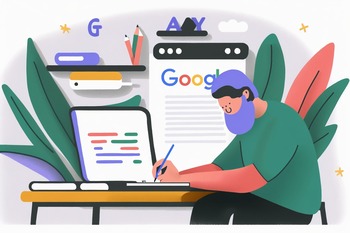Why SEO Experts Want You to Focus on Topics to Get Better Google Rankings
It is a widely known fact that keywords are a vital ingredient of search engine optimisation. They help you create content that will interest your target audience. At the same time, they also make it easier for people to find both your content and website online. For this reason, it’s crucial to start any online marketing campaign with keyword research.
However, while our SEO experts here at Springhill Marketing recognise the significance of keywords in your online success, they should not be the sole focus of your SEO campaign. It’s also essential to make topics the focal point of your optimisation strategies.
Contents
Key Differences between Keywords and Topics
In most cases, marketers used keywords and topics interchangeably. However, topics possess specific qualities that make them unique from keywords.
To help you better understand their difference, first, let us discuss the exact definition of a keyword.
From an SEO perspective, keywords range from single to multiple words that are integrated into web content to attract relevant web traffic. From a user’s perspective, they are the words that are typed or spoken into search engines to find specific information or websites on the Internet.
Topics, on the other hand, are composed of several related keywords and search queries that are used in the different stages of a user’s journey. To put it simply, topics are made up of relevant keywords, while keywords suggest related topics.
Before, Google used to match users to websites according to the keywords they have entered into the search box. With the recent algorithm updates, however, the search giant now uses the contextual meaning of web content and websites to provide users with better and more accurate search results.
How to Use Topics to Improve Your Search Rankings
Here’s how you can make the most of topics to rank higher on Google:
1. Identify the topics that interest your audience
Start your campaign with a clear strategy. You can do this by identifying the issues that might pique your target audience’s interest. After listing down potential topics, you can now proceed with standard keyword research.
When conducting keyword research, make sure that you don’t focus on your main keywords. You should also expand your search to include terms that are semantically related to your topics. You can do this by taking a good look at the sub-topics that may be related to your main subject. Then, identify the questions that your audience might ask about these sub-topics and research the keywords related to them. This should help you cover the bases and satisfy the needs of your audience.
2. Study the competition
Once you have an idea of what type of content you need for a particular topic, the next step is to determine who is ranking well for it. If a competitor is ranking well for a specific topic, they are likely using the right strategy.
After developing a firm grasp of your competitor’s strategy for the topic you’re targeting, find out how they structure and deliver their content. This will give you an idea on what you should do when working on your site or content.
Keep in mind, however, that you shouldn’t copy what they are dong. Plagiarising other people’s content pieces and copying them word for word will get you in big trouble with Google. Instead, what you should do is find out what your competitors are doing well and then do it much better.
3. Understand search intent
With Google launching the BERT update,it is now more important than ever to understand a user’s purpose behind a particular search query. By understanding a user’s search intent, it will be easier for you to determine what type of content you need to create or even refurbish so you can satisfy the needs of your audience.
There are many tools you can use to help understand your audience’s motivation for searching for specific topics online. However, you might be surprised to find out that Googling specific terms while in incognito mode can help you identify the intent behind a search query.
When you look up a particular topic using a single-word query, you’ll notice that the results mainly revolve around educational content. For example, if you search ‘SEO’ on Google, you’ll see that many of the search results focus on answering the question “What is SEO?”
4. Consider your site structure
To get good search rankings, it’s also essential to organise your content in a way that will make it easier for Google’s search bots to crawl it. This will give the search giant the impression that you’re an authority in a particular topic or subject.
One way to do is to utilise internal linking. Many SEO experts and marketers like us here at Springhill Marketing have been using these small navigational aids to encourage web visitors to explore a website further and help them discover content that is related to the one they are currently reading. Not only do they help improve user experience, but internal links also enable search bots to understand better how to get from one part of your site to another.
Dominate Google with Topics
While keywords are indeed vital to SEO, they should not be your sole focus when developing your content and SEO strategy. It would help if you also targeted topics to address the needs of your audience better. With Google constantly updating its search algorithms, it certainly helps to look for new strategies to achieve better results.
Now that you know how you can leverage the power of topics, it’s time to implement your content strategy so you can get better search rankings on Google. If you need help, you may contact us at Springhill Marketing anytime.
Drive Your Business Towards The Best Results.
Talk to us about how we can help.














